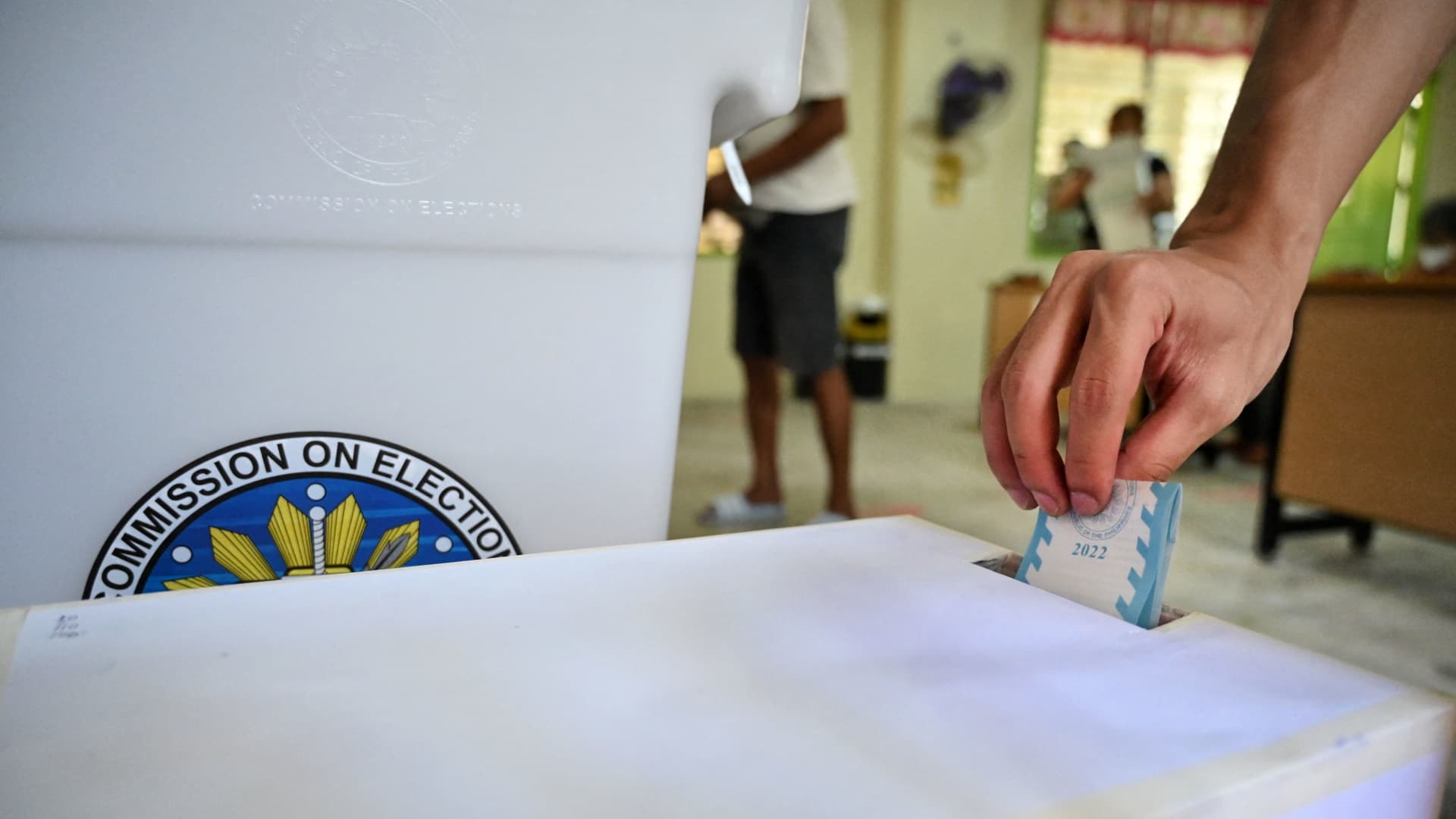
Ferdinand Marcos Jr. appears poised to be the next president of the Philippines as millions began voting on Monday, under the watchful eyes of thousands of security forces after violence claimed four lives over the weekend.
According to one of the latest opinion polls, the 64-year-old namesake son of a deposed dictator, will win more than half the votes to become the first presidential candidate to secure an absolute majority in decades.
The survey, released last Monday, showed that he polled at 56% — way ahead of his main rival incumbent Vice-President Leni Robredo who was at a distant 23%.
Popularly known as Bongbong, Marcos Jr. is the son of former president Ferdinand Marcos Sr., who ruled the country with an iron fist for two decades until he was overthrown in 1986 following mass protests. During the campaign, Marcos has tried to recast his father’s legacy as comparable to former U.S. president John F. Kennedy’s family in its glamor.
Robredo, a 57-year-old lawyer and economist, will need a low turnout or a late surge of support to score an upset.
Outgoing President Rodrigo Duterte, 77, is constitutionally barred from seeking a second term. He has not endorsed any candidate, but his daughter Sara is Bongbong Marcos’ running mate.
Filippinos will also elect a vice-president, senators, lower house legislators and provincial as well as local officials in polls that are estimated to attract about 65.7 million registered voters in the country and 1.69 million others overseas, local media said, citing figures by the Commission on Elections.
Over 50% of voters are between the ages of 18 and 41, which means they have no memory of the brutal rule of Marcos Sr. because they were either not born or too young to understand the mass incarcerations, torture and other abuses of that era.
After six years of Duterte’s hardline rule, during which the country witnessed a brutal anti-drug war, there are widespread fears that a landslide win for the younger Marcos may herald a return to authoritarian rule. Both Bongbong and Sara Duterte have said they are best qualified to “unify” the country.
Elections in the Philippines are frequently marred by violence. On Saturday, four people were killed in a shootout between candidates for mayoral elections in the northern Ilocos Sur province. Three security guards were also killed in Buluan municipality on restive Mindanao island in the southern Philippines on Monday when gunmen opened fire at a polling station, according to AFP news agency.
In all, there were 16 election-related violent incidents during this campaign, less than in 2016 and 2019. More than 60,000 security personnel have been deployed to protect polling stations and election workers.




